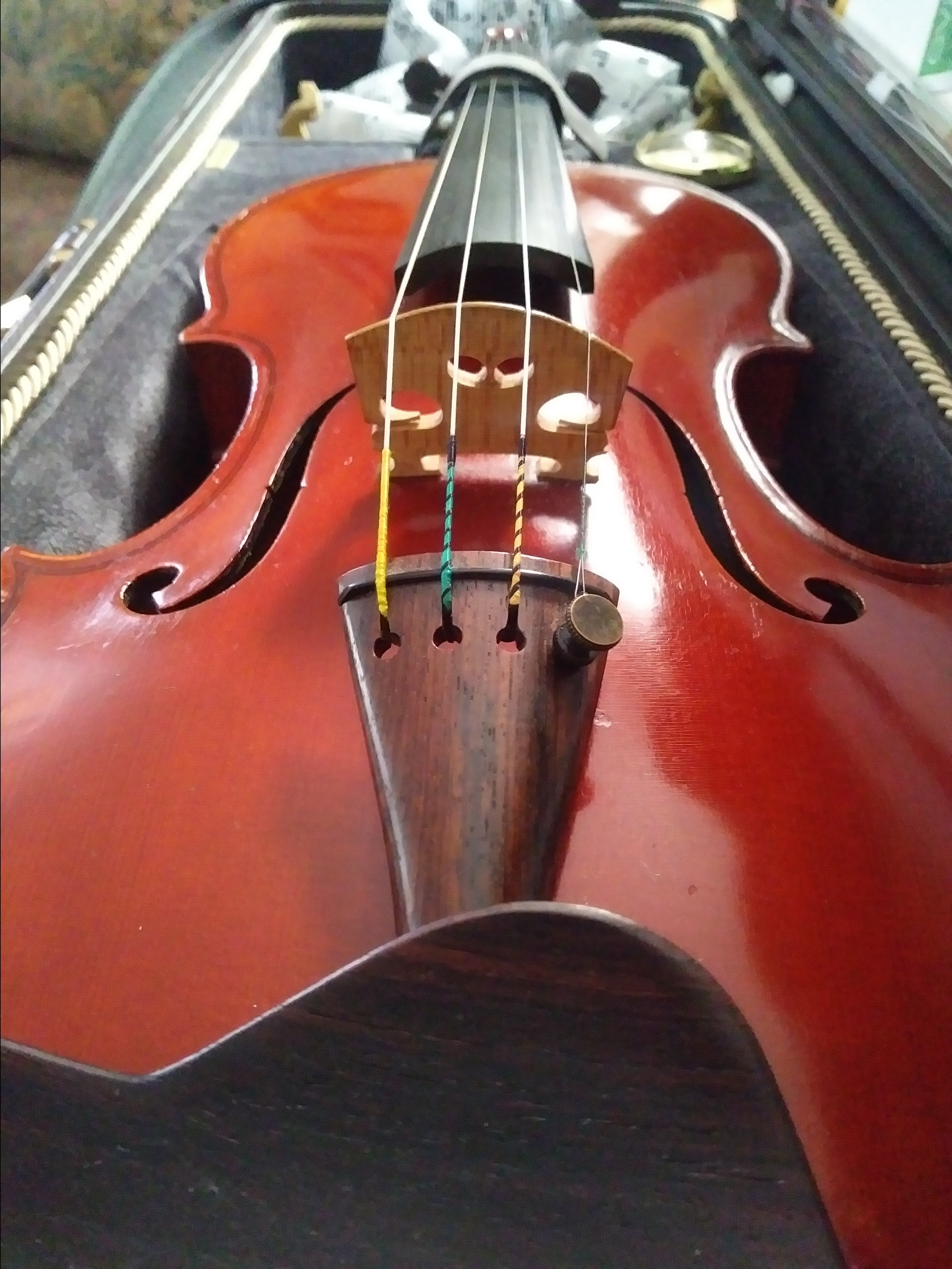JULY 23, 2019 – Yesterday, after the usual entanglements at work, I went home and wrestled with our overgrown shrubbery. After giving major haircuts and gathering up, then piling up the clippings, I was ready for something more relaxing . . . like practicing my violin.
What was I thinking?!
On my scale, so to speak, all violinists fall into one of seven categories:
- Poor;
- Fair;
- Good;
- Excellent;
- Extraordinary – professional;
- Solo Career;
- Star Wonder.
In case you’re curious, I put myself in the “Good” column—most of the time. I think I might have made it to “Excellent,” if only . . .
Here’s where things get highly speculative, but hear me out—especially if you’ve hear me play and are even more skeptical of my self-rating than you are of what my theoretical potential might have been.
If only a teacher had told my parents before I started the violin at age five, “Start him on piano. Violin is the easiest instrument on which to sound bad. Piano is the easiest instrument from which to get a decent sound. Have him learn the basics of musical structure, and allow him some easy victories with simple adaptations of Bach, Mozart, and Beethoven. Start him on violin at six.”
If only a teacher had told me, “Go master a sport—any sport—and then bring your mastery to music. Use the imagery of your mastered sport to master your musical instrument—in artistic expression every bit as much as in technique.”
If only a teacher had explained the physiology of the brain and of . . . the adage, “Practice makes perfect.”
If only a teacher had not simply ripped to shreds my lesson renditions of etudes and repertoire, then sent me packing to “practice” for another week before the next “shredding” session; if only a teacher had periodically listened to a recording of half an hour of my practice time. Doubtless the teacher would have learned volumes—and then shared them with me!
If only a teacher had ground into my sorry brain by age eight, “Technique is the key to expression, and scales are the key to technique.”
If only a teacher had told me that what appears as a “left hand problem” is often, if not usually, cured by the bow arm.
If only a teacher had told me to record myself playing the pieces I was working on, then listening and asking 1. What do I like and why? What don’t I like and why? 3. How do I want it to sound? 4. Can I figure out on my own out how to achieve that? 5. If not, how can the teacher help me?
If only a teacher had made sight-reading part of every lesson and every practice session.
If only a teacher had told me at age 14 to read Louis Lochner’s biography of Fritz Kreisler.
If only I had fully grasped long before I did, what beauty lives in the voice of the violin.
If only . . .
© 2019 Eric Nilsson
